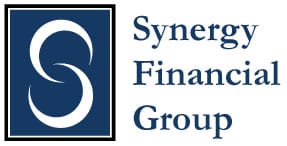This is Part 2 of our “Get in the Game” series. Part 1 is here in case you missed it. In part 2, we will start by discussing important areas of loan qualifying and the benefits of owning a home:
The typical way to buy your first home is you start saving for a down payment, start paying off other debts you might have, get your income up to a “qualifiable” level, and make sure your credit is acceptable to a lender. It is important to note that:
Down Payment: Can be as low as 3.5% (FHA) of the purchase price, or even “0” if you are a veteran on a VA loan. Also, FHA loans allow 100% gift funds from a direct relative, and conventional loans require that the borrower has only 5.0% of their own funds for the down payment and the balance can be in the form of a gift.
Credit: FHA will allow credit scores as low as the high 500 range and conventional loans are really looking for credit scores 680 or higher, but there are always exceptions to these rules so don’t get discouraged. The sooner you can get 3-5 items of credit on your credit report (i.e., a credit card or two, car loan, student loan, home loan, etc.) the better for credit score purposes. Remember, that each person has three credit scores (one from Experian, one for Equifax, and one from Trans Union). Real estate lenders use a borrowers middle credit score of these three when underwriting. It is best to keep credit card balances at 40% or less of the credit card line limit, to avoid unnecessary hits to your credit scores. Also, make sure that you pay all your bills within the first 29 days (or sooner if required by the creditor, like mortgages have only a 15 day grace period) of their due date to avoid late payments on your credit report. If you see a late payment on your credit profile, check to see if you paid it before the 30 day “mark.” If you did and can prove it, the creditor will have to update their credit reporting.
Loan Qualifying: Lenders look at 4 major areas when underwriting a loan file, the borrowers credit, income/total debt ratio, assets, and size of down payment/or equity in the property. Loan pricing is based on how you fare in these categories.
Benefits of owning a home:
The IRS allows you to write off interest on up to $750,000 in real estate financing and all of your property taxes paid. If you own a rental property, you can write off most other costs, like insurance, property management, most repairs, etc.
You can lock in your mortgage payment on a fixed rate for the length of the loan, so that cost remains fixed, while your income rises over the years. Property taxes can and typically go up 2.0% per year, so if you are paying $3,000 in annual property taxes in year 1, they can raise them up to $3,060 in year 2, and so on. Homeowner’s insurance premiums are based on the value of the structure, not on the land, so insurance premiums are very affordable. You can buy flood and earthquake insurance also to protect your home.
You control what is done to the property, such as what color you paint your home, how you landscape it, etc.
Any appreciation accrues to your benefit, not someone else’s.
Rents keep rising 3-5% a year and probably will continue doing so.
There is a shortage of housing here in CA, we have incredibly low interest rates, and a strong job market here. Demand is higher than supply now and when that occurs prices rise. Real estate goes through cycles, but the overall trend is upwards. Those houses I was selling back in the 1980’s are worth 10-12 times more now than what we were selling them for, even though we have experienced three down cycles since then. I bet everyone that has owned real estate over the years, wishes they held onto their old homes, rented them out, and never sold any of their real estate. If they had figured out a way to hold onto their old real estate, their accumulated wealth would be higher now.
In Part 3, I will start discussing unconventional ways to “get in the real estate game.”
Source: Residential First Capital
We are ready to help you find the best possible mortgage solution for your situation. Contact Sheila Siegel at Synergy Financial Group today.







